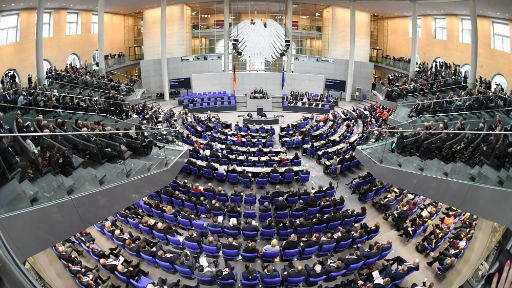Thanks to the joint efforts of several pro-life organizations, a major victory was obtained on 6 July in Germany. A fierce debate arose in the final days Germany’s parliamentary session over proposals for the legalization of assisted suicide.
The first proposal came from Katrin Helling-Plahr and Renate Künast; it aimed to make assisted suicide available for all who are capable of decision-making with a constant desire to end their lives. The other, presented by Lars Castellucci, involved at the very least the safety measure of a preliminary assessment of the patient’s psychic conditions.
Cornelia Kaminski, president of one of Germany’s main pro-life organizations (Aktion Lebensrecht für Alle), said she is please with this epoch-making result and explained the situation: “This was a really good day for the Parliament and for German society at large, because both drafts were turned down by the Parliament.”
It’s a win that German MPs refused to decide on a matter of life or death involving so many people in Germany. The current law rather effectively stops professional organizations that seek to offer assisted suicide to people and which are starting their activity now in Germany.
“As we all know,” Kaminski continued, “assisted suicide means opening the door to euthanasia [killing someone without their permission]; assisted suicide is an effective tool for ending one’s own life in countries where euthanasia is not allowed. We are now helping our Parliament members take time to reconsider the drafts, to look at them, and to establish good suicide prevention programs, preventing people from taking that decision.”
If the proposed legislation had been approved, Germany would have had the most radical assisted suicide laws worldwide, allowing anybody over 18 – regardless of any illness or ailment – to request assisted suicide from a doctor. These laws would also have ended the protection of Catholic institutions like hospices or senior care facilities from banning assisted suicide societies from offering their services within their premises. There would not have been any safe spaces – any safe zones – where people would be free from the pressure by those offering suicide.
This lifesaving win came about thanks to the joint efforts of pro-life activists: “We fought until the very last minute,” explained Kaminski. It was an unprecedented effort to force MPs to vote on the second to last day of the parliamentary season; the two drafts were presented just a couple of days previously. Against this menace, as Cornelia tells us, “We stepped into action and sent all MPs postcards and emails; we also protested in front of the Bundestag [Germany Parliament]. Life wins!”
This encouraging result is a very welcome seed of hope reminding all pro-lifers that no struggle is lost in advance, and that passion and effective coordination can work miracles.
